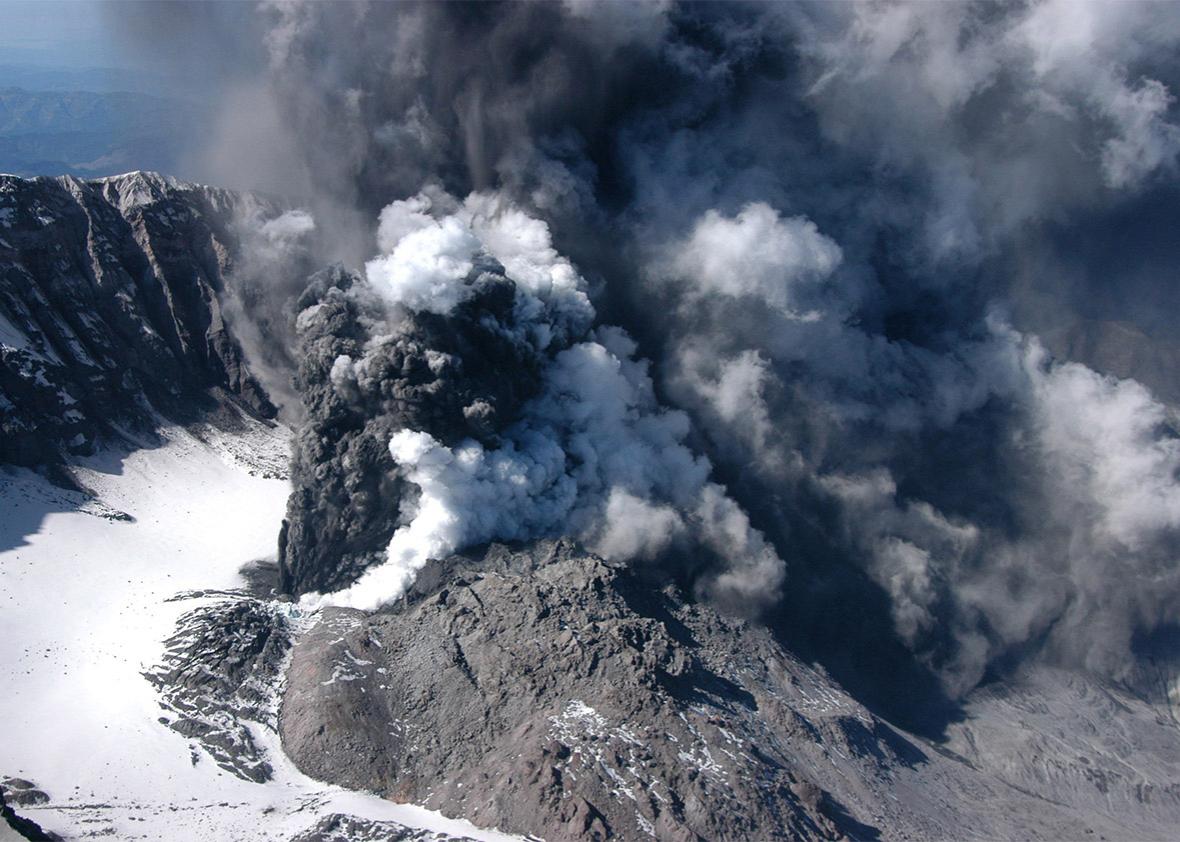Paul Lisicky takes tsunamis personally. In 2010, after the Haitian earthquake, he couldn’t tear his eyes from the television, waiting for a hundred-foot wave to “slop over car and grass and shrub: come on.” “The inevitable,” he writes in The Narrow Door, a book about his friendship with the late novelist Denise Gess, “this thing that wants to do us in: we can’t watch the spectacle of it with any distance or detachment. We can’t see that this wave is not about us.”
How can something as annihilating as death—something that snuffs out one-of-a-kind, irreplaceable flames—be impersonal? How do you sweep together “car and grass and shrub” (or, as an earlier writer phrased it, “rocks and stones and trees”) without being in some sense “about” the difference between a car and a shrub, or between Paul Lisicky and Denise Gess?
Part elegy, part natural history, and all memoir, The Narrow Door traces two of Lisicky’s long-term relationships, the first with Gess, and the second with Lisicky’s ex-husband, a poet he calls M. The Gess friendship, plunging between support and competition (writers!), takes center stage. It is a road paved with heartfelt correspondence yet pocked by silences, sore spots. Denise treasures Paul. Denise resents Paul for achieving a level of success she feels eluded her. Paul makes Denise a mix tape that sums up their relationship, on which all the songs “say yes and yes and yes to love, in spite of the evidence against it: the compromises that should have never begun, the failures of communication, the disappointment surely to come.” Denise gets cancer.
The book jumps around in time, interpolating scenes from their early friendship (they are both teaching assistants in Rutgers’ English department, both ascendant novelists) with descriptions of her decline and his mourning after her death. The structure can be disorienting, especially because Lisicky favors the present tense: Now he attends a prestigious writer’s conference (“Everyone around me seems to be having sex”), now travels with interchangeable not-Denise friends (Katrina, Braunwyn, Maggie …), now imagines flashpoint moments from the lives of Joni Mitchell and Vincent van Gogh, now drifts further and further away from M. But even when she vanishes for long stretches, Denise remains the memoir’s occasion and central enigma.
Delivering her eulogy, Lisicky remembers, “I don’t break down—that’s the last thing I want to do right now. I don’t want the delivery to be about me.” But it is. A few boilerplate lines of tribute (“a ray of energy moving right into you”) get us as close as we ever come to Denise the individual, the “single shining entity” (to borrow one character’s words about Walt Whitman). In part, that failure seems ontological and built into the elegiac form. Denise, Lisicky insists, equals multiple Denises, “fractured and dazzling,” un-pin-down-able by a single representation. But her elusiveness is also a symptom of the way Lisicky uses her as a lens through which to see himself.
The Narrow Door is a work of bleeding boundaries. Lisicky activates this theme, early on, with a quote from J.D. Salinger, who along with Whitman forms part of the text’s imaginative infrastructure. (Glass-ian images of trapdoors and riffs on Holden Caulfield’s frozen pond appear throughout.) In this sentence, from Franny and Zooey, a character recalls: “Seymour once said to me—in a crosstown bus, of all places—that all legitimate religious study must lead to unlearning the differences, the illusory differences, between boys and girls, animals and stones, day and night, heat and cold.” Lisicky reflects that dissolving such lines—or thinking about dissolving them as your bus route collapses the border between the east side and the west side—is “good,” and that’s how he writes: by letting his emotions spill into the natural world, into involved and sensual descriptions of environmental catastrophe. Like a Discovery Channel show narrated by Supreme Leader Snoke, he relives the Deepwater Horizon oil leak, the eruption of Mount St. Helens, earthquakes, tsunamis, hurricanes, explosions, and Sept. 11. Denise grows frailer and M finds a new lover; meanwhile, Lisicky displaces his feelings about life’s precariousness onto a televised demolition, the house coming down “as a person would, balancing there for a minute, stricken.”
And it is stunningly done. “The last time I played the tearless role was at our wedding,” Lisicky writes, “in a salt marsh on Cape Cod … when I read [M.] a passage from Song of Myself.” Get it? The author does not weep, but he stands in a salt marsh, which weeps for him. And he uses Whitman’s song of himself to articulate his own identity, to meld and fuse it to the soul of another man. As these gay selves melt together and pour into the landscape, you wonder whether it is the sense of taboo around their desires that first forced them to project their inner lives outward. (Have gay writers always been “coming out” this way?) Whitman did it: One passage in The Narrow Door lingers over his description of grass as “the unkempt hair of graves,” an especially throat-squeezing citation in a book about a cancer patient.

Image by Star Black
Lisicky, an Iowa M.F.A. who’s held a number of tony fellowships and residencies (along the way collecting shimmery insider friendships for Gess to envy), has passed through America’s official creative writing gullet. He crafts prose like someone who workshops crafted prose for a living, which means he’s elegant, precise, and sensitive. (One highlight: an amazing passage after he breaks up with M., “My furnace. My doorway. My duty. My desert. My daystar.”) But page-by-page, Lisicky’s style relies less on extravagant language than on extravagant techne: a maximal use of complexity. Even putting aside all the echoes and tropes, his sentences contain unusually nuanced shades of thought and meaning, as when he says that a character looks like “she’s been places, if not literal places.” Or when chemo scrambles Denise’s brain until her stream of consciousness breaks apart, so that “each thought is another roll of the dice.” Or when he fights with M: “I feel myself moving away from him. I feel my body moving out through the open window, up through the trees … I am aware that my crying can probably be heard outside the window. I don’t know why I should be concerned about the sound of my crying out the window, but there it is.”
The tearless groom weeps now, as his relationship founders. The sound spills into the wider world, where the neighbors can hear and the noise stops belonging only to him. This is Lisicky revealing the loss that can follow a shattered boundary. M. is to Paul, who floats out the window moments before the crying does, as Paul is to his own tears. Losing M. is like losing himself.
It’s fascinating—given how exquisitely worked and wrought this memoir is—when Lisicky takes a second to chafe at editors’ response to his unpublished novel. “The rejections are appreciative, respectful. They say the writing is beautiful—and yet? ‘Quiet’ is the word that’s most often used,” he reports. Quiet seems right. It reminds me that Internet writing has made us connoisseurs of a certain kind of voice-y, jumpy, take-no-prisoners prose. I found Lisicky’s style different, and delightful. What bothered me more was the way his permeable margins gave the book a sweat sheen of self-absorption, which is itself a predictably basic plaint about memoir. Yet when every natural disaster represents an aspect of your psyche, and characters exist to teach you truths about yourself, it’s hard to avoid. After pages of stirring, careful introspection, for example, Lisicky concludes with a line that’s meant to explode with revelation: “A thought leans into me like a shoulder I can’t see: my life would be larger if I could hold the dark side of Denise alongside the bright.” Yes but—Denise is dying, so is the size of his life really the point here?
Yet to suggest that Lisicky isn’t aware of, and torturing himself over, elegy’s competing impulses is to undersell the book’s wisdom. “Shapely paragraphs, consoling thoughts—no,” he chides himself at one point. “None of that belongs in this space.” At the same time, “I don’t want to be all over the place.” Might that be the hard-won realization of The Narrow Door? That discipline, the drawing of boundaries and the practice of techne, is as much a part of grief as loosening your hair to the wind? With my favorite line in the book, Lisicky fences a border instead of voiding it, and he conjures Denise’s craft instead of demonstrating his own. “That smile on her face!” he remembers, marveling at the memory of his friend. “A smile that could turn diamonds to black powder, which sounds more like her description than mine.”
—
The Narrow Door: A Memoir of Friendship by Paul Lisicky. Graywolf.
See all the pieces in the Slate Book Review.
